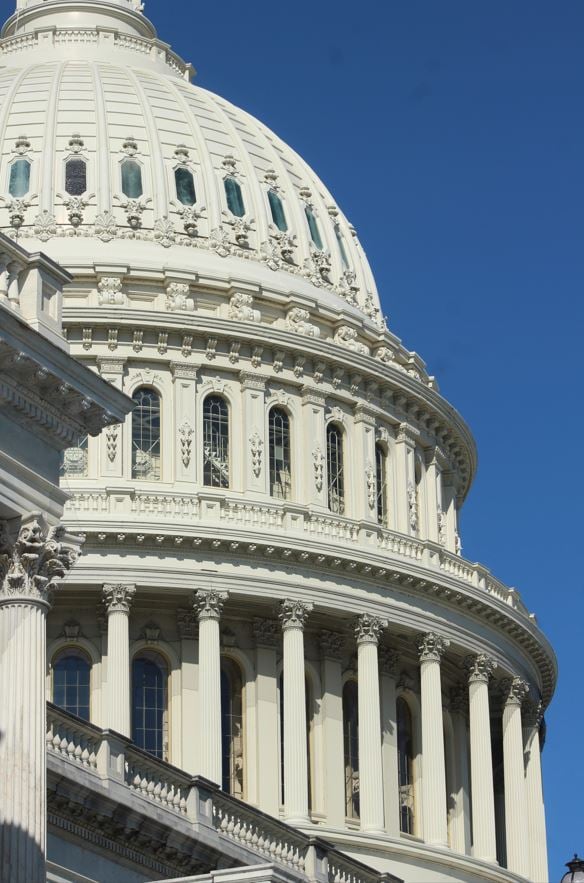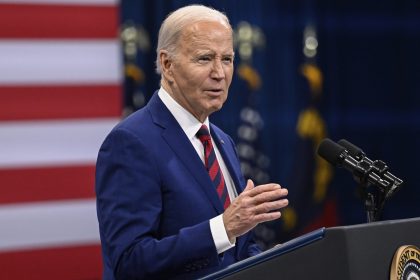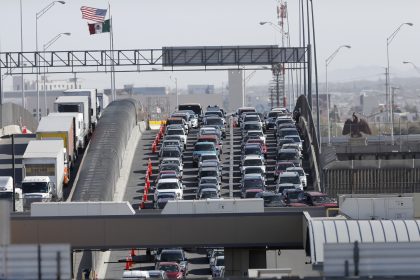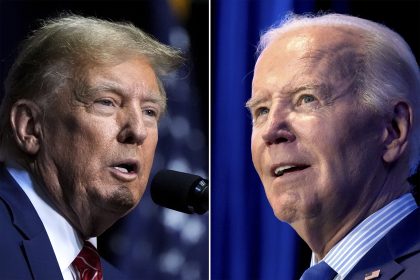Congress’ Job Approval Plummets During Prolonged Speaker Search

WASHINGTON — Americans’ Approval of Congress plummeted to a six-year low this past month, as a prolonged search for a new House speaker effectively froze the chamber in its tracks, the Gallup company revealed on Friday.
Gallup has been measuring Americans’ opinions of the job Congress is doing since 1974, and doing monthly updates since 2001.
Its latest findings show that overall approval on Congress’ job performance fell from 17% to 13% this past month, the lowest approval rating for the legislative branch of government since October and November 2017, when it also nosedived to 13%.
Congress’ approval rating has mostly been in the teens and low 20s since 2010, though it hit its all-time low of 9% in November 2013.
Historically, the pollster said, Congress’ job approval rating has been somewhere in the 30% range.
The poll was based on telephone interviews conducted between Oct. 2 and Oct. 23, and starting a day before former House Speaker Kevin McCarthy, R-Calif., was ousted after eight members of his own Republican conference revolted against him.
The action came in response to McCarthy negotiating a bipartisan bill to fund the government through mid-November to avoid a government shutdown at the end of the 2023 fiscal year.
The eight members objected to McCarthy relying on Democratic votes for passage of the spending bill, in addition to other grievances they had with him.
The polling ended on Monday, two days before Republicans elected Rep. Mike Johnson, R-La., to be the next speaker.
In between, three other members — House Majority Leader Steve Scalise, R-La., House Judiciary Chairman Jim Jordan, R-Ohio, and House Majority Whip Tom Emmer, R-Ind. — were all briefly designated the conference’s choice and all swiftly cast aside.
Even with the elevation of Johnson, Congress is facing a number of short-term challenges, including the passage of another continuing resolution before funding of the government expires on Nov. 17.
Then there’s the matter of having to swiftly finish work on a number of Fiscal Year 2024 appropriations bills — work that should have been completed months ago — passage of a new farm bill, and action on President Biden’s $105 billion supplemental funding request to aid Ukraine, Israel, humanitarian efforts in Gaza and efforts to bolster security at the U.S. border with Mexico.
The survey is based on the opinions of a random sample of 1,009 adults, aged 18 and older, living in all 50 U.S. states and the District of Columbia.
While they didn’t think much of Congress, the survey also found that a large percentage of them were also unhappy with Biden’s performance, giving him a job approval rating of just 37%, tying a personal low for him.
Frustration with government leaders is apparent in Americans’ naming government as the most important problem facing the country, with 19% mentioning that issue, Gallup said.
Fourteen percent name the economy and, separately, inflation, while 13% believe immigration is the top policy concern at the moment.
Republicans and Democrats are about equally negative in their evaluations of Congress, with 8% of Republicans and 10% of Democrats approving of the job it is doing.
For Democrats, the new figure represents a 12-point decline from September.
It is the lowest rating Democrats have given Congress since a 9% reading in December 2018, when Republicans controlled both houses of Congress under then-President Donald Trump.
Republicans’ approval rating is unchanged from September but had declined between August (16%) and September (9%).
Republicans have generally been less positive toward Congress this year than Democrats have, even though the GOP has the House majority after their gains in the 2022 midterm elections.
Democrats maintain a majority in the Senate, and their approval of Congress is likely aided by there being a Democratic president in the White House.
Currently, 19% of independents approve of the job Congress is doing, which is unchanged from last month and similar to where it has been throughout 2023.
Roughly equal proportions of Republicans (22%) and Democrats (20%) name the government as the most important issue facing the country, with independents slightly lower at 16%.
In September, the three groups were about equally likely to cite the government as the nation’s top problem — 18% of Republicans, 17% of independents and 19% of Democrats.
Gallup said the margin of sampling error is ±4 percentage points at the 95% confidence level.
Each sample of national adults that Gallup relies on includes a minimum quota of 80% cellphone respondents and 20% landline respondents, with additional minimum quotas by time zone within the region.
Landline and cellular telephone numbers are selected using random-digit-dial methods, the pollster said.
Dan can be reached at [email protected] and at https://twitter.com/DanMcCue
























